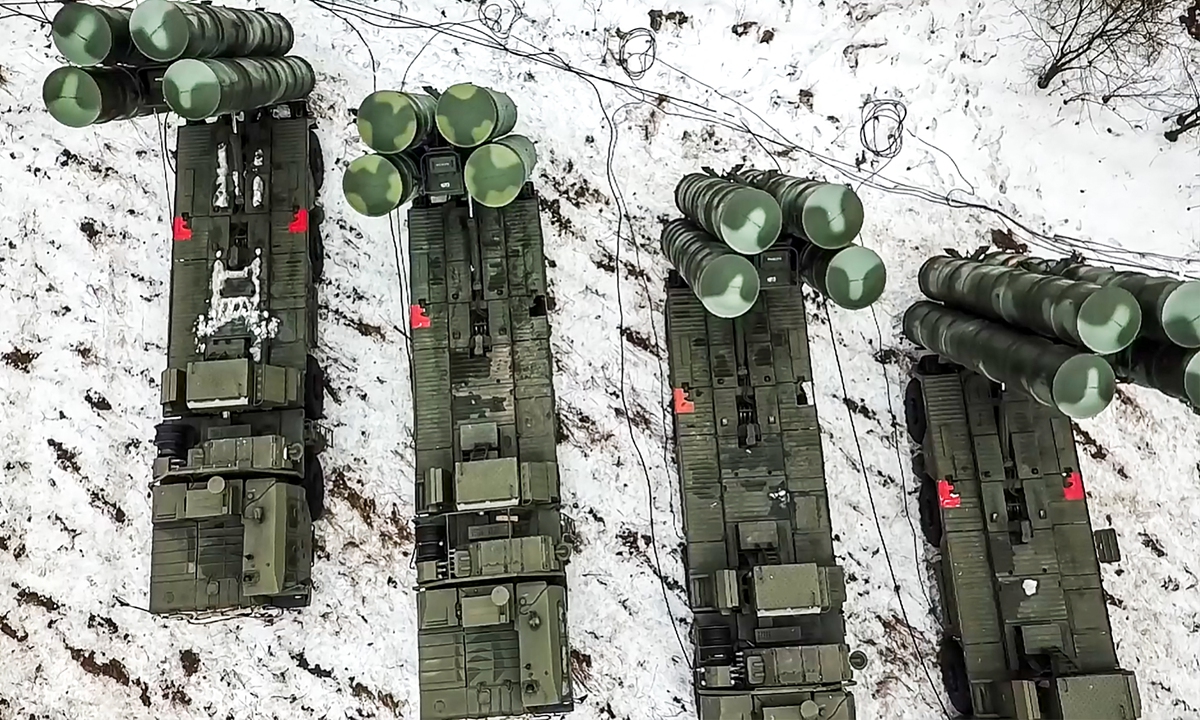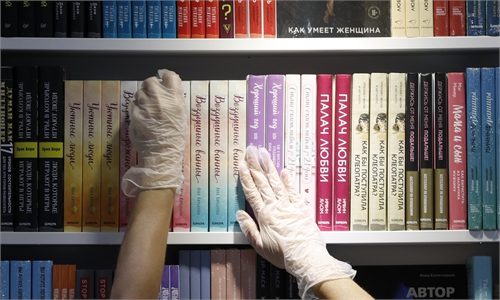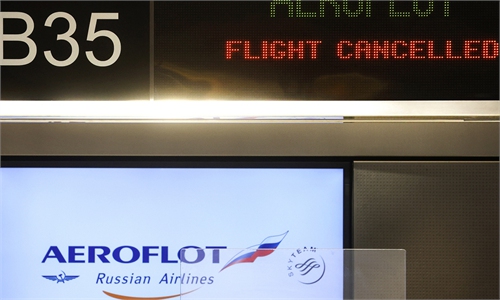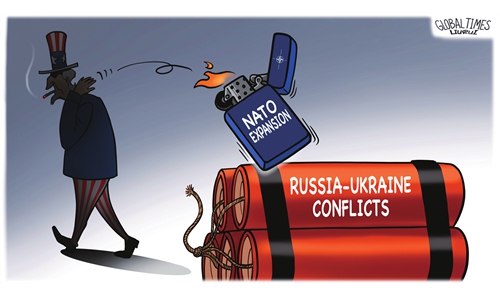New US sanctions on Russia’s defense industry ‘won’t have significant impact’
Military sector independent, does not rely on Western technologies

Combat crews of the S-400 air defense system taking up combat duty during joint exercises by Russia and Belarus on February 9, 2022 which center around "suppressing and repelling external aggression" amid Western claims that Moscow is plotting a major escalation of the conflict in Ukraine. Photo: AFP
In an attempt to impose significant costs on Russian weapons development and production companies as a mean to strike the Russian military amid the ongoing conflict between Russia and Ukraine, the US recently announced new sanctions on Russia's defense industry that media said could also affect Russia's arms trade, a vital source of the country's income.
But the sanctions are not as useful as the US thinks, as Russia's defense sector has been independent and does not rely on Western technologies, and Russian gear deployment in real combat could serve as high quality advertisements that draw higher demand, analysts said on Friday.
The US will also unlikely sanction India, a major buyer of Russian weapons, as it still wants to use India to pin down China, analysts said.
Among the Biden administration's actions on Wednesday, State Department sanctions target 22 Russian entities that make combat aircraft, infantry fighting vehicles, electronic warfare systems, missiles, and unmanned aerial vehicles for Russia's military, US media outlet the Defense News reported on Thursday.
The White House said sanctions on Russia's defense sector would "impose significant costs on Russian weapons development and production companies," according to the report.
These new US sanctions are not going to land a devastating blow on Russia, Song Zhongping, a Chinese military expert and TV commentator, told the Global Times on Friday.
Russian weapons and equipment are known for their independent development, and most of them do not use Western technologies, Song said.
If the sanctions increase the cost of weapons and equipment, that would be the result of inflation, Song said, noting that Russia will also be able to overcome the financial sanctions it faces.
The Defense News report also said that the sanctions could affect Russia's arms exports, noting that Russia is the world's second-largest arms exporter after the US, averaging more than $13 billion in reported annual sales, according to the Congressional Research Service.
On Wednesday, a US State Department official told lawmakers it is unlikely Russia will be able to make new sales or provide maintenance to customers on existing systems, the report said.
The export of weapons and military equipment is a vital source of Russia's income, and while targeting this sector could hit Russia, it is easier said than done, analysts said.
"We need to look at the military sanctions list from many aspects. Only by sorting out the categories, destination countries and settlement methods can we see how much impact there is on Russia's military and foreign trade. But overall, there shouldn't be much impact," an analyst on Russia told the Global Times on the condition of anonymity.
Russian arms are mainly sold to India, Turkey, and Iran. Except Turkey, a member of NATO, India and Iran are not under US control, said the analyst.
"Since Iran was kicked out of SWIFT, its military trade with Russia must have been settled in other ways, which are not controlled by the US," the analyst said.
The energy trade accounted for about 50 percent of Russia's foreign trade and 40 percent of its fiscal revenue, and agriculture products accounted for about 10 percent, according to the analyst.
On the contrary, Russian weapons could become even more popular on the international market, because they are being tested in combat, Song said.
Combat is the best and only way to demonstrate the weapons' performance, and the deployment of the weapons in combat will not let Russia lose its international arms market, but win more, Song said.
Even before the Ukraine crisis, the US has been attempting to hit Russia's weapons export by sanctioning the buyers, and while that worked to some extent, it did not stop Russian weapons from being in high demand, a Beijing-based military expert told the Global Times, requesting anonymity.
The Countering American Adversaries Through Sanctions Act passed in 2017 authorizes US sanctions on transactions with Russian defense or intelligence sectors, but it includes a waiver authority, the Hill reported Thursday.
Amid the wide-ranging consequences the West is seeking to impose on Russia over the Ukraine crisis, the Biden administration is weighing whether to impose sanctions against India over its stockpile of and reliance on Russian military equipment, the Hill reported.
But the US will find it difficult to decide, as it still hopes to rely on India to act as a counterweight to China and as part of Quad, the anonymous expert said.
India will not likely give up its historically close military ties with Russia, and if the US sanctions India, its Indo-Pacific Strategy against China will take a blow, the expert said.




